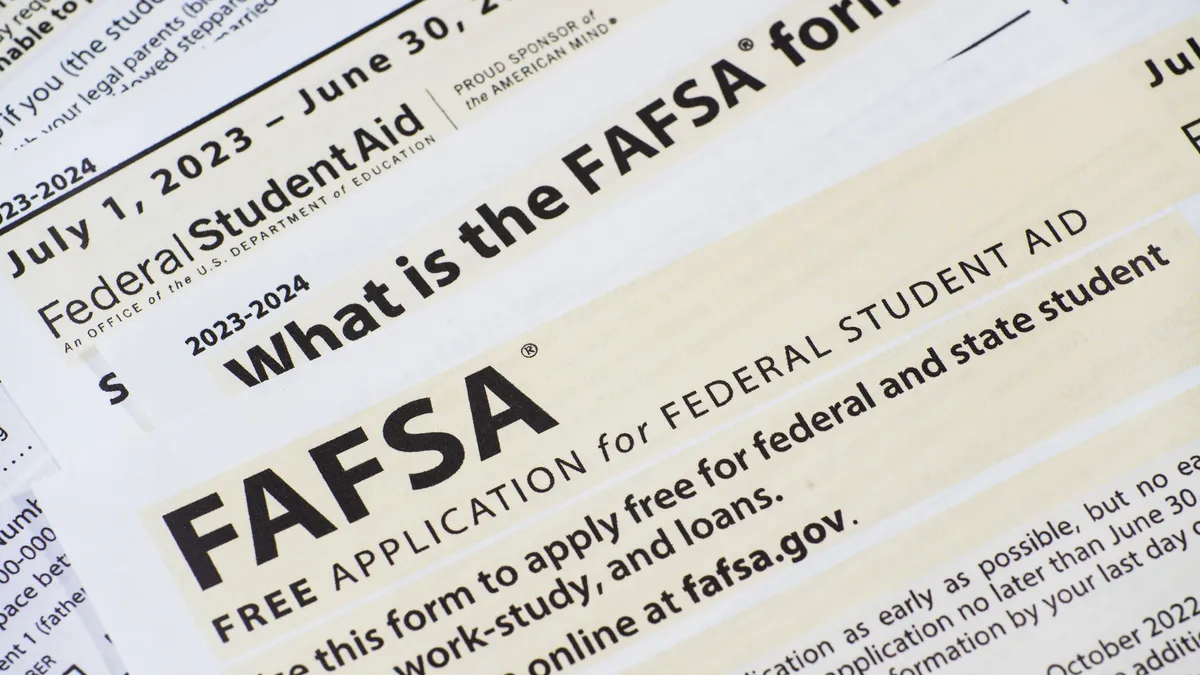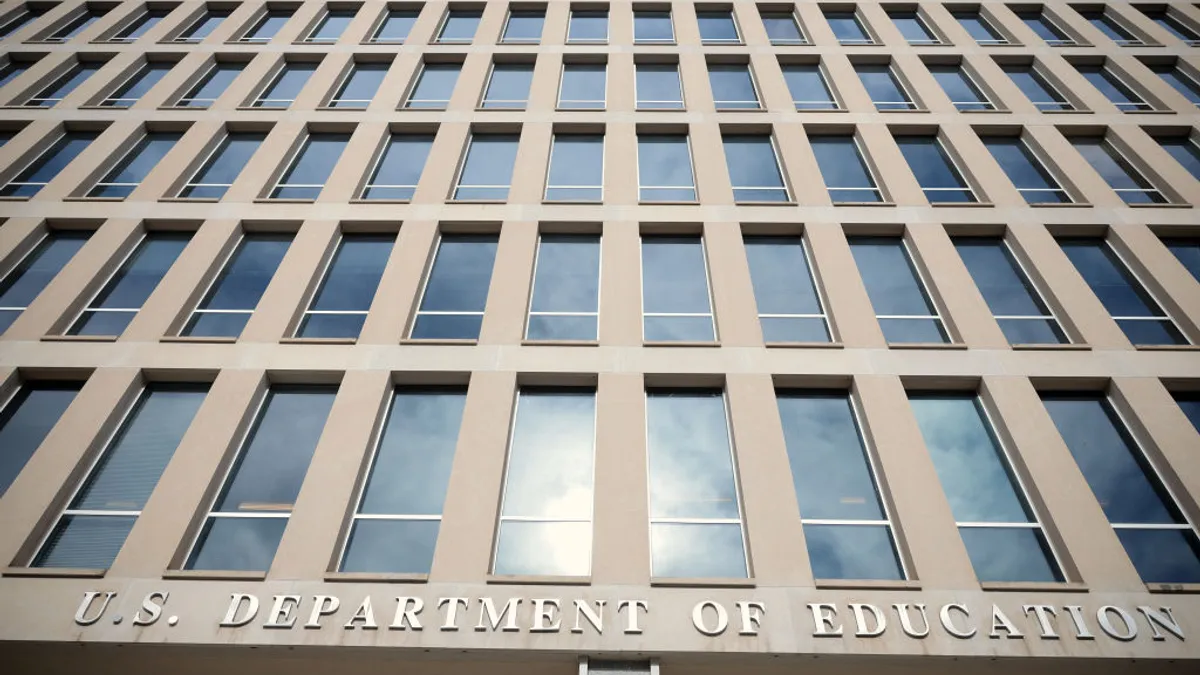Over the past year, K-12 and higher education news has developed at a breathless pace.
While some stories have already faded in our memories, others have sparked lasting movements in education that will extend beyond 2018. Since January, Marjory Stoneman Douglas High School shooting survivors launched a nationwide campaign for gun reform, teachers across the U.S. went on strike against underfunded public schools and the Education Department proposed sweeping reforms to Title IX regulations.
Several stories we read stuck with us this year because they put a spotlight on how national trends in education are affecting everyday people, from college hopefuls in small-town Louisiana to conservative student groups on Penn State's sprawling campus.
Below, we gathered up some of the most compelling stories of 2018 that showed us the human side of the big decisions in education:
K-12
ProPublica | A Betrayal
A teenager in Long Island, New York, was looking for a way out of his MS-13 gang, whose members were killing off students in his high school. So he wrote a confession to his 11th-grade English teacher and gave information to police, with an expectation he would be relocated in return. Instead, ProPublica's Hannah Dreier reports, "he was slated for deportation and marked for death." Read more.
The Baltimore Sun | These Baltimore students aren't afraid of mass shootings. They're facing gun violence in their everyday lives.
In a city for which 2018 marks the fourth-straight year of at least 300 homicides, many school children have already grappled with and even witnessed losing loved ones to gunfire. "They say it's more love in the world than hurt," said one 18-year-old senior. "I want to go to where it's love and not where everybody constantly getting hurt all the time." Read more.
The New York Times Magazine | Arizona Lawmakers Cut Education Budgets. Then Teachers Got Angry.
Fed up with stagnant pay and poorly funded public schools, Arizona teachers converged at their state capitol to urge lawmakers to increase education funding. Feeling that little was being done, the teachers then took matters into their own hands, launching a movement to support pro-education ballot measures and candidates. "Teachers have to solve systemic problems on their own," said one teacher who ran for the State Senate. "We've been doing this for years, but Arizona's children are entitled to a better system." Read more.
The Oregonian | Targeted: A Family and the Quest to Stop the Next School Shooter
Under pressure to prevent gun violence, schools have been putting some students through threat assessments, or in other words, tests to root out the next mass shooter, writes The Oregonian's Bethany Barnes. One student selected as a result of those assessments — a "nerdy" 16-year-old on the autism spectrum with a penchant for wearing a trench coat — was steered toward night school and subject to random searches. "They've effectively created a dropout," said the student's father. Read more.
The New Yorker | Georgia's Separate and Unequal Special-Education System
In Georgia, black boys are disproportionately placed in a set of schools for disabled students that one lawyer called an "insidious, shadow education system," often after being labeled as having a vague emotional or behavioral disorder, The New Yorker's Rachel Aviv writes. "We always had a sprinkling of middle-class white kids, maybe two or three, but they didn't stay long," said one teacher who worked within the network. "Everyone made sure they got out. It was the black students who were trapped there. They came in first grade and never left." Read more.
Higher Education
The New York Times | Louisiana School Made Headlines for Sending Black Kids to Elite Colleges. Here's the Reality.
A small school in Louisiana made a name for itself by sharing viral videos of its underprivileged black students opening acceptance letters from Ivy League and other big-name colleges. But a New York Times investigation found the school doctored applications, falsified transcripts, and fostered a culture of fear and violence. "That dream you see on television, all those videos," said one student's mother, "it's really a nightmare." Read more.
ProPublica | Billion-Dollar Blessings
Liberty University, a private nonprofit Christian college in Virginia, has quietly expanded its distance-learning programs to become the second-largest online education provider in the U.S. The college's president has insisted it has been able to maintain the same level of quality in its growing online arm, but an investigation by ProPublica revealed allegations that it provides low-value education and uses its online students to bankroll expensive projects on the main campus. Read more.
The Atlantic | The Future of Trumpism is on Campus
Donald Trump's presidency has split the Republican party into two camps: those who welcome his irreverent style and political agenda and those who think he's drifted too far from conservative values. Those opposing views are clashing on U.S. college campuses, where conservative student groups are struggling to find a unified voice amid a "civil war within the Republican Party," writes The Atlantic's Elaine Godfrey. Read more.
The Baffler | Been Down So Long It Looks Like Debt to Me
The amount of student loan debt in the U.S. just hit a new record, and although most borrowers owe somewhere in the five-figure range, a small but significant share surpass that. In this personal essay, journalist M.H. Miller calls to task the "foundational myth" that got him into his own student loan mess: "[T]he false promise that education was priceless — that its value was above or beyond its cost." Read more.
The Atlantic | Colleges Are No Match for American Poverty
When Russell Lowery-Hart joined the administration of Amarillo College, in Texas, he learned the graduation rate was just 9%, largely due to issues stemming from student poverty. Since then, the college president has doubled down on services for low-income students, from a campus food pantry to emergency grants for the utility bills and unexpected car repairs that can upend an education. "Quit wishing for a different kind of student," he said. "We want to be the right college for the students we have." Read more.















